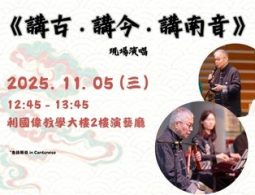9 September 2024
It is common for travellers to rely on online guides for trip planning. However, the abundance of information can be overwhelming and raise doubts about credibility. A research team led by The Hang Seng University of Hong Kong (HSUHK) and National Pingtung University have developed a “Perceived Value of Online Travel Reviews” (PVOTR) scale to assist travel service providers, travel agencies, and booking platforms in designing more effective online review templates for potential customers. It also gives potential customers more valuable reference information when planning their trips. The research was published in the Asia Pacific Journal of Tourism Research.
The research has been structured into two parts to examine online reviews posted about travel products and services providers including hotels, restaurants, and travel agencies. The first part focuses on establishing a comprehensive and methodical framework to analyse online travel reviews, and the second part focuses on exploring how online travel reviews written based on the established framework influences customers’ purchasing attitudes towards online travel products and services.
The research team observed that the existing studies on online reviews in the tourism market have primarily focused on the readily quantifiable aspects of reviews to assess the credibility of review sources and characteristics. However, the team identified a lack of comprehensive analytical tools and research focusing on the qualitative aspects of review quality. To address this gap, the team performed an extensive literature review and invited professionals from the industries of e-commerce and the internet usage, as well as tourism and hospitality, to evaluate content and provide expert insights. The PVOTR scale is categorised in six value dimensions, encompassing a total of 27 items (see Appendix) that customers consider when evaluating and making purchasing decisions. These six value dimensions are proficiency, timeliness, objectivity, product features, brand disclosure and comprehensiveness. The travel industry can use this framework to create online review templates for customers to write reviews.
Dr Crystal Wu, project coordinator and Assistant Professor at the Department of Marketing from the School of Business of HSUHK said that if a travel review comprises of these six elements, it will meet potential customers’ expectations on important information and effectively assist them in choosing travel products and services. To determine the effectiveness of the framework, the team also conducted surveys via questionnaires as well as interviews to validate the findings with 69 undergraduate students majoring in tourism and hospitality, and 485 travellers.
In the second part of the research, researchers focused on the influence of online travel reviews based on the PVOTR scale for customers’ attitudes and purchase decisions toward online travel products. The team invited individuals who had made online travel purchases within the last 12 months to complete a questionnaire at Kaohsiung International Airport, and received a total of 469 valid responses. The research findings indicate that when online travel reviews provide valid and reliable information, they facilitate more effective decision-making among customers and reduce the perceived complexity associated with the online travel purchasing process. As a result, travellers were more likely to have positive attitudes towards making travel-related purchases through digital channels.
Dr Wu said the research team believes that these findings can offer valuable guidance and reference for industry stakeholders. The results can inform the design of existing evaluation review template forms used by customers to provide feedback on tourism-related products and services. By incorporating the identified factors that influence PVOTR, customers can elicit more reliable and trustworthy information and have more confidence when making online travel purchases. Additionally, the PVOTR scale developed through this research can assist businesses in analysing big data collected by customer reviews. This analytical framework can then be leveraged to formulate targeted promotions, publicity, and sales strategies that align with the business model and attract a greater number of potential customers.
Click here for the full article (English only).
For details of PVOTR scale, please click here.

Related Posts
The HSUHK Outstanding SME ESG and Business Performance Award 2025 Award Presentation Ceremony
The HSUHK Outstanding SME ESG and Business Performance Award was first launched last year, and it has quickly become a remarkable platform to recognize outstanding…
HSUHK Information Day 2025
Date: 15 November 2025 (Saturday) Time: 9:30 am – 5:00 pmFeature Talk:• Interactive Seminar: nteractive Seminar: Future vs. Prestige: How to Choose?(Speaker: Professor Joshua Mok…
【1 iGPS – Free Performance】Arts@HSUHK – “The Past and Presence of Naamyum (Southern Tone)”
“Naamyum” is a form of Cantonese narrative singing that originated in Guangdong. It was inscribed onto the third batch of the “List of the Representative…
Arts@HSUHK – “Lunchtime Drum Performance”
Arts@HSUHK is thrilled to present a soul-stirring drum performance by the top drumming instructors from the Hong Kong International Drummer Festival during lunchtime. Join us…




